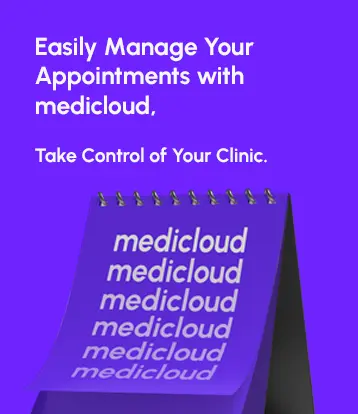How to Ensure HIPAA Compliance with Dental Software
Introduction
The Health Insurance Portability and Accountability Act (HIPAA) is a federal law enacted in the United States in 1996 to protect sensitive patient information from unauthorized disclosure. For dental practices, HIPAA compliance is a non-negotiable requirement. However, ensuring compliance can be a challenging task, given the increasing reliance on digital platforms for patient management and record-keeping.
That’s why the choice of dental software you use can make a significant difference in how smoothly your practice navigates the murky waters of HIPAA compliance. In this article, we’ll discuss how dental software can either help or hinder your compliance journey and why MediCloud is becoming a go-to solution for many dental practices aiming for stringent compliance with ease.
What Does HIPAA Compliance Mean for Dental Practices?
Protected Health Information (PHI)
HIPAA compliance primarily revolves around the secure management of Protected Health Information (PHI). PHI includes any personally identifiable health-related information, such as medical history, diagnosis, and even payment records. Dental practices must take steps to secure PHI both in digital formats and paper records.
HIPAA Rules
HIPAA consists of three primary rules that impact dental practices:
- Privacy Rule: Governs the use and disclosure of PHI.
- Security Rule: Focuses on administrative, physical, and technical safeguards to protect PHI.
- Breach Notification Rule: Outlines what must be done in the event of an unauthorized disclosure or breach of PHI.
Key Considerations for HIPAA-Compliant Dental Software
1. Data Encryption
Data encryption transforms your patient data into an unreadable format unless one has the encryption key. Your dental software should offer robust encryption for both stored and transmitted data.
2. User Authentication
Multi-factor authentication adds an extra layer of security by requiring multiple forms of verification before granting access.
3. Regular Audits and Updates
Regular software audits can help you identify potential security risks and areas for improvement.
4. Role-Based Access Control
This feature allows you to specify who within your practice can access various types of information.
5. Emergency Access
In case of an emergency, there should be a secure but quick way to access patient data.
6. Data Backup and Recovery
Your software should automatically back up your data in a secure location and offer a straightforward recovery process in case of data loss.
7. Contractual Assurance
Your software provider should be willing to sign a Business Associate Agreement (BAA), which outlines their responsibilities in maintaining HIPAA compliance.
How to Evaluate HIPAA Compliance in Dental Software
1. Check for Encryption Protocols
Ensure the software offers end-to-end encryption for data storage and transfer.
2. Inquire About Audits
Ask if the software has undergone third-party audits for security and HIPAA compliance.
3. Read User Reviews and Testimonials
See what other dental practices have to say about the software’s security features.
4. Request a BAA
Never proceed without a signed Business Associate Agreement.
5. Test the Software
Many providers offer free trials. Use this time to check for HIPAA compliance features.
MediCloud: Your Partner in HIPAA Compliance
When it comes to achieving and maintaining HIPAA compliance effortlessly, MediCloud emerges as a dental software you can trust. Here’s how MediCloud meets the above-listed criteria with finesse:
1. Data Encryption
MediCloud uses advanced encryption algorithms to protect your data at rest and in transit.
2. User Authentication
Two-factor authentication ensures that only authorized personnel can access sensitive patient information.
3. Audits and Updates
MediCloud regularly undergoes third-party audits to ensure its security measures are up to date.
4. Role-Based Access Control
MediCloud allows you to specify roles for your team members, thereby offering an extra layer of data protection.
5. Data Backup and Recovery
With MediCloud, you never have to worry about data loss as the system automatically performs secure backups.
Conclusion
HIPAA compliance is an ongoing journey that demands diligence, the right tools, and an organizational culture of privacy and security. Dental software plays a critical role in this journey, and choosing software that has HIPAA compliance built into its architecture can save you a world of headaches down the line.
MediCloud offers not just a path to easier HIPAA compliance but also a comprehensive range of features that can significantly improve the efficiency and profitability of your dental practice.


